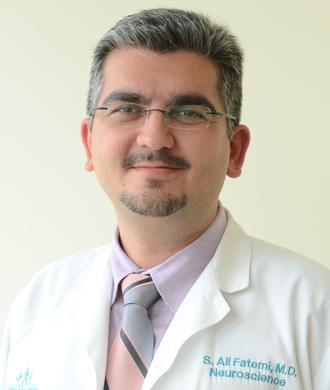2018 Year-End Update:
With the end of the year at hand, I’d like to let you know what’s been happening at the Moser Center for Leukodystrophies at Kennedy Krieger Institute. It’s been a busy year, with lots of great activity!

We’re excited to announce that the center is a site for two exciting clinical trials: a pediatric vitamin D trial for adrenoleukodystrophy (ALD)— we are actively recruiting patients —and an adult Minoryx trial for adrenomyeloneuropathy (AMN), for which we’ve already enrolled several adult men and the study is ongoing (we are no longer enrolling new patients).
On the bench side, we continue with extensive studies to identify and test new therapeutics for ALD. Using a nanotechnology platform referred to as dendrimer, we published our results with the first compound called D-NAC in Annals of Neurology on September 24, 2018. In this study, we showed that a polyamidoamine nanodendrimer conjugated to the antioxidant NAC normalized the highly abnormal inflammatory behavior of patient derived immune cells. This product is now being moved forward towards a clinical trial through a startup company and discussions are ongoing with the Food and Drug administration.
In our lab, we’re now expanding upon that study by using a newer compound, D-4PBA
(4-Phenylbutyrate). Through generous donations and a grant by the Brian’s Hope Foundation, we have very exciting pilot data, but will need to verify that data through more testing. We anticipate that an additional $100,000 to $200,000 would allow this work to continue.
On the clinical research side, we continue our work on the cross-standardization of spinal cord MRIs for adults with AMN. The funding we received from the Orphan Disease Center at the University of Pennsylvania’s Perelman School of Medicine—the center raised the funds through its Million Dollar Bike Ride fundraising event—has allowed us to develop novel imaging methods of the spinal cord that could serve as markers of disease progression and will be potentially essential for conduction of clinical trials. Before we can start scanning patients with AMN, we need to obtain funding to pay for the imaging studies, the costs to complete such a study is very high (close to a million dollars) and would need to do in a multicenter fashion. We are hopeful that with a set of pilot data which could be done with $100,000 we would be able to obtain sufficient data to apply for a larger grant together with other ALD centers.
Our center is collaborating with the Aiden Jack Seeger Foundation to develop a standard protocol for monitoring boys diagnosed with ALD at birth. We have submitted an abstract on this topic to the American Academy of Neurology, and we hope to give a presentation on the protocol at the organization’s 2019 annual meeting.
At the Moser Center, we take an interdisciplinary approach to providing comprehensive care to patients with leukodystrophies. What distinguishes us is that we don’t simply diagnose patients and identify new diseases. We treat our patients like individuals, recommending personalized treatments and endeavoring to find cures for them. Following in Dr. Hugo Moser’s footsteps, the center works collaboratively with other leukodystrophy centers across the country and around the world to ensure that every one of our patients receives the best possible care. Thank you for continuing to believe in our mission.
We’d be honored if you might make a contribution to the Moser Center. The ALD community is our family, and there’s nothing that matters more to us than eradicating this disease.
Yours,
Ali Fatemi, MD
Director, Moser Center for Leukodystrophies
